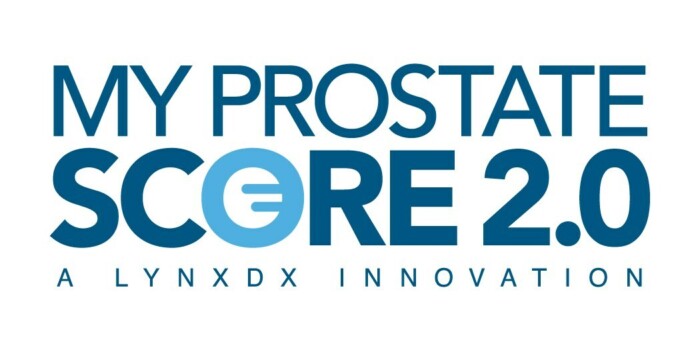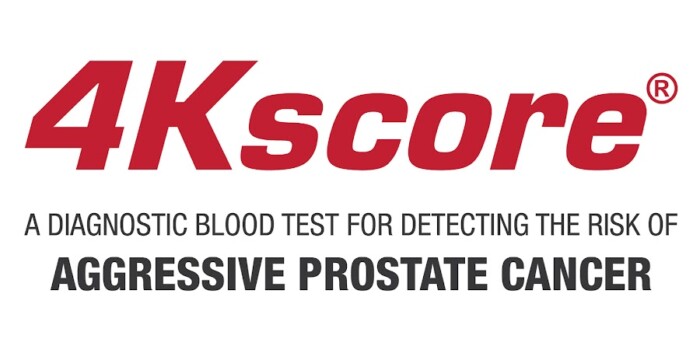Should I get a PSA test to screen for prostate cancer?
The PSA test is a simple, low-cost blood test that is a helpful initial test to determine if you should have additional prostate health tests.
The PSA test is an important first step in prostate health screening. It’s a simple, inexpensive blood test that measures a protein called protein-specific antigen (PSA). Much like a blood pressure test, it provides a baseline health measure. If you have elevated blood pressure, your physician will order additional tests. Similarly, an elevated PSA level (above 1.5 ng/mL) should alert you and your physician to move on to additional prostate screening tests, including a digital rectal exam (DRE) and prostate cancer biomarker (PCM) tests.
You may have heard that regular PSA screening in all men has been controversial. But why is this? When not used in combination with other prostate cancer screening tests, it can lead to over-diagnoses and over-treatment. In the past, many men with elevated PSA levels were referred directly for prostate biopsies. Many of these men had elevated PSA levels due to non-cancerous conditions or non-aggressive cancer and suffered unnecessary side effects from prostate biopsies when they actually never should have had biopsies. In fact, 3 out of 4 men with elevated PSA levels DO NOT have cancer.
Unfortunately, the PSA test can’t differentiate between what’s causing an elevated level (much like blood pressure can’t actually tell you what’s going on with your body, just that something is “off” and additional testing is necessary). As widespread PSA screening rates have declined, men have been dying from prostate cancer at increased rates—despite advancements in treatment. Researchers also have found an association between reduced PSA screenings and an increase in the percentage of men diagnosed with late-stage prostate cancer that has metastasized, according to a 2022 study published in the JAMA Oncology.
So what should you do when it comes to PSA testing? Ask for the PSA test — and keep asking, particularly if you are 50 or older or at higher risk (Black men and men with a family history of certain types of cancer). The PSA test is valuable when used with other tests. More than 7 out of 10 men won’t have an elevated PSA and will not even need to consider additional tests. But like blood pressure, having a PSA test can help monitor any rise in levels as all men will have their PSA levels rise as they age.
Learn more about what PCM tests are helpful if you have an elevated PSA level (above 1.5 ng/mL). Along with a digital rectal exam and thorough family history, these tests can provide you and your healthcare provider with more insights about what may be causing your elevated PSA level and can help determine the best next steps.
PCM Tests After a PSA Test and Before Biopsy
If you have an elevated PSA score (above 1.5 ng/mL) or a normal PSA but have other risk factors — such as an enlarged prostate or family history of cancer — discuss these biomarker tests with your provider before deciding to have a prostate biopsy.

Select MDx
Select MDx is a urine test used after an abnormal PSA to determine if a biopsy is needed.

ExoDx
ExoDx Prostate Intelliscore is a urine test that is used with a PSA to determine if an initial biopsy is necessary or if you can continue to be monitored.

MyProstateScore 2.0
MyProstateScore 2.0 (MPS2) is a urine test that can help you and your doctor understand your prostate cancer risk.

PROSTest
PROSTest is a simple blood test that helps detect prostate cancer with over 90% accuracy. No biopsy, no urine collection, just powerful answers from a single blood draw.
%s
If your PSA test is more than 1.5 ng/ML, you and your physician could consider one of the following blood-based tests:
The PSA test for prostate cancer can be an important step in identifying prostate cancer early when combined with additional testing, particularly PCM tests. Traditionally, only men with a PSA greater than 4.0 ng/ML are referred for biopsies. However, current research has found that men with a PSA result greater than 1.5 ng/ML may be at risk of already having developed prostate cancer depending on other risk factors.

4Kscore Test
This blood test is used after an abnormal PSA and/or digital rectal exam (DRE) to assess the probability of finding aggressive prostate cancer, using four prostate-specific biomarkers and clinical information.

phi
The phi score combines data from three blood tests to determine if an elevated PSA score may be due to a benign condition or cancer.
%s
If you have a family history of prostate cancer, breast cancer, ovarian cancer or colorectal cancer, you and your healthcare provider may also consider one of these genetic tests.

ProstateNext
The ProstateNext genetic test analyzes 14 genes, including the BRCA1 and BRCA2 genes, to determine a man’s risk of developing hereditary prostate cancer.

Myriad MyRisk
The Myriad MyRisk Hereditary Cancer test can be effective in identifying a man's elevated risk for eight hereditary cancers, including prostate cancer.
%s
Based on the results of your prostate cancer marker tests at this phase in your prostate cancer journey, if you are considered low-risk, you and your physician will likely choose to repeat the PSA test in a year. If you are considered high risk, you may be a candidate for a prostate biopsy.
PSA Testing FAQs
Below is an initial list of frequently asked questions about prostate cancer risk, PSA screening and PCM tests relevant to this topic.
Although there are many factors that contribute to your healthcare provider’s decision to conduct a prostate biopsy, there are several urinary and blood based PCMs that may help guide you and your physician through the decision of conducting a prostate biopsy. These include:
Genetic tests also may be worth considering if you have a family history of prostate cancer, breast cancer, ovarian cancer or colorectal cancer. These genetic tests are recommended for men who are determined through genetic counseling to be at potential risk for hereditary cancer:
Prostate cancer biomarkers (PCMs) are molecules found in blood, tissue, or body fluids. PCMs are revolutionary new, non-invasive diagnostic tests that may help your healthcare provider decide if your prostate cancer is in fact low risk, if something more aggressive may be lurking in your prostate, or if there are hot spots in the prostate that may need to be re-evaluated upon biopsy. PCMs also can help you and your healthcare provider determine the most appropriate treatment for your cancer.
There are many factors that will make one prostate cancer marker test better suited for individual cases. Many times, individuals who have never had a biopsy or had low to intermediate grade prostate cancer (Gleason 3+3=6 or 3+4=7) diagnosed on a biopsy are well suited for blood or urine prostate cancer markers, whereas individuals who have persistently negative biopsies or a biopsy of intermediate to high grade cancer may benefit from tissue prostate cancer markers. Use this interactive questionnaire to see what tests may be right for you. Once you’ve completed the questionnaire, discuss the results with your healthcare provider. Also be sure to check out our Patient Journey section that may help you decide which test is right for you.
The PSA test cannot differentiate between prostate cancer and non-cancerous (benign) conditions, such as benign prostatic hyperplasia (BPH). Men who receive a PSA level above 1.5 ng/ML should discuss additional biomarker testing with their healthcare providers prior to considering a prostate biopsy.
No, in fact less than 30% of men with a PSA level >4.0 ng/mL will be diagnosed with cancer. Unfortunately, the PSA test cannot differentiate between cancer and non-cancerous conditions like an infection (prostatitis), a urinary tract infection (UTI), an enlarged prostate (benign prostatic hyperplasia), or other non-cancerous conditions. Certain types of vigorous exercise, such as cycling, and sexual intercourse can stimulate the prostate and cause PSA levels to rise so men should abstain from both at least 48 hours prior to a PSA test. Regular use of certain medications including statins, NSAIDs, and thiazide diuretics have been shown to cause a decrease in PSA levels, so men should alert their physicians if taking these medications. Conversely, other medications, such as testosterone, can raise PSA levels. Having a digital rectal exam (DRE) prior to a PSA blood test can also momentarily raise PSA levels, which is why the PSA test should be conducted first.
Because the PSA test is a simple, inexpensive blood test, it’s a great first step in identifying men who may benefit from additional testing including prostate cancer biomarkers, which can provide more insights about what is causing elevated PSA levels.
Learn More
The PSA test for prostate cancer is just the first step in learning more about your risk. Below are additional insights.

